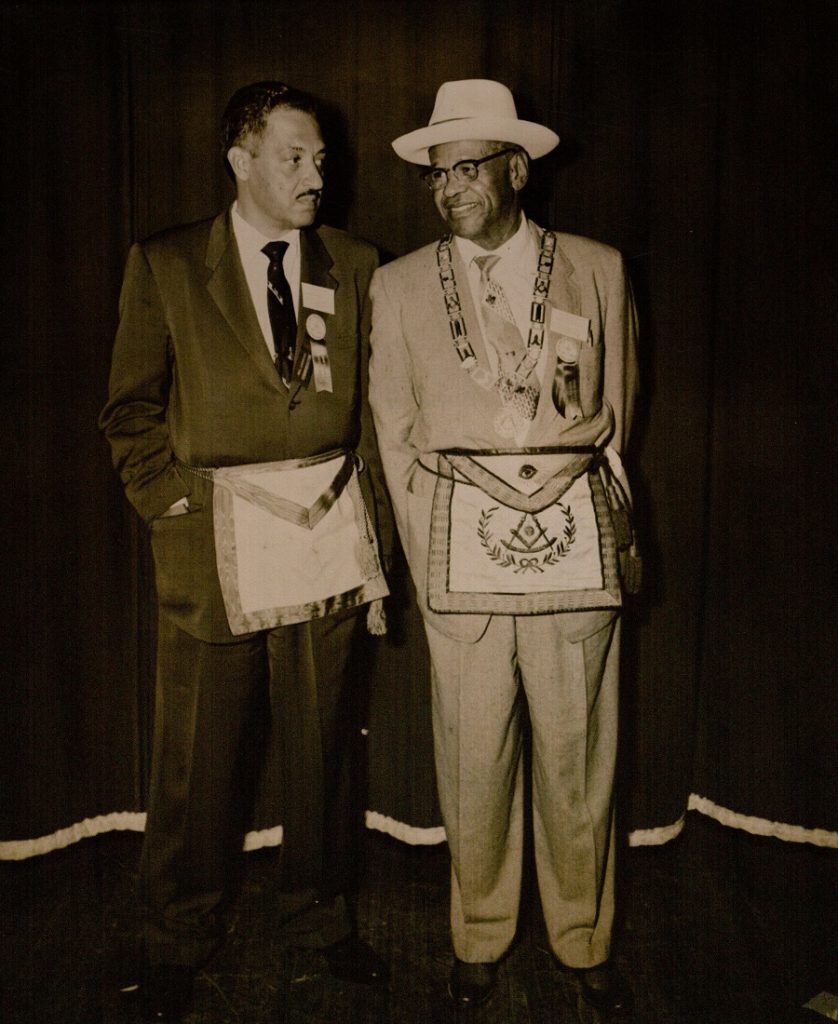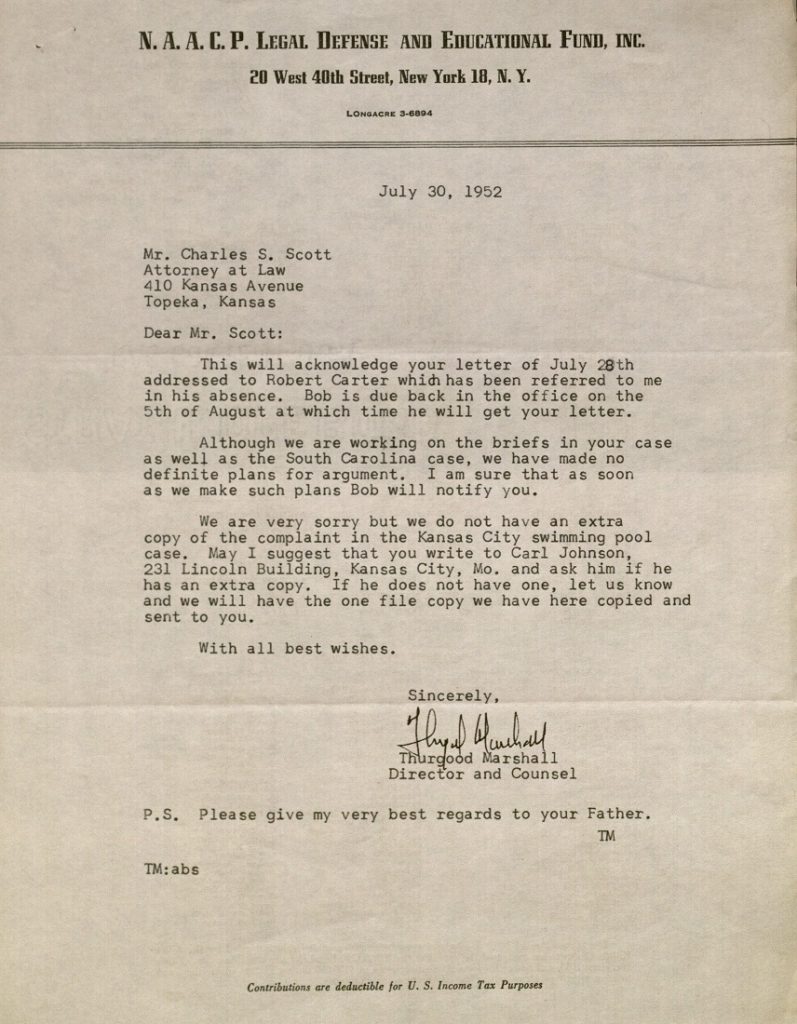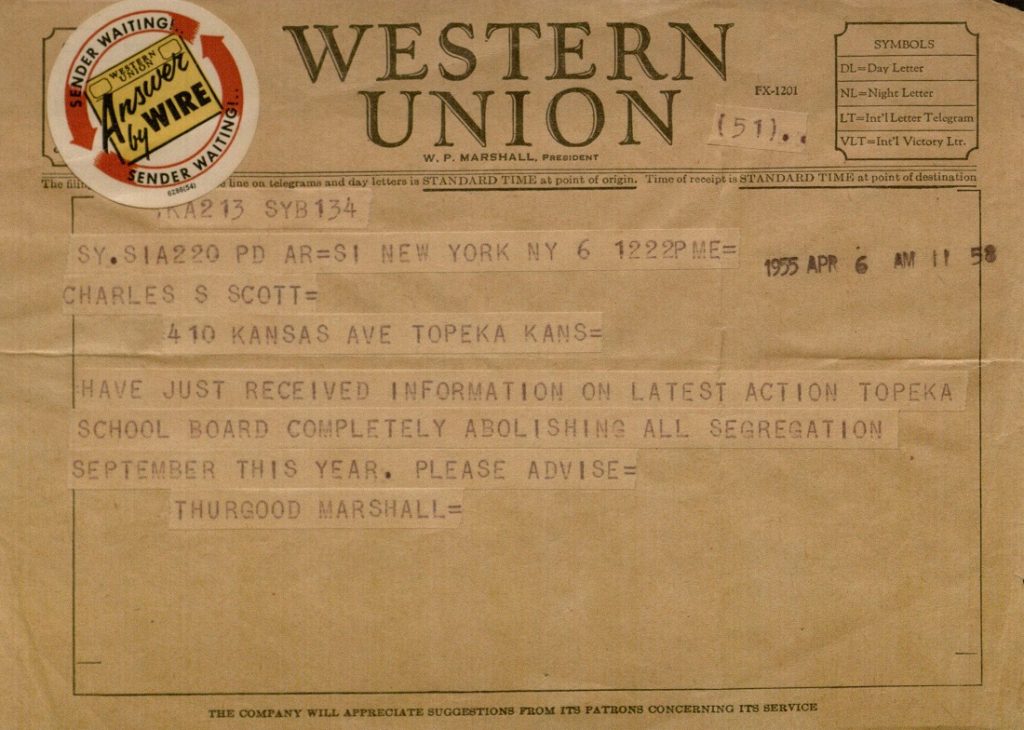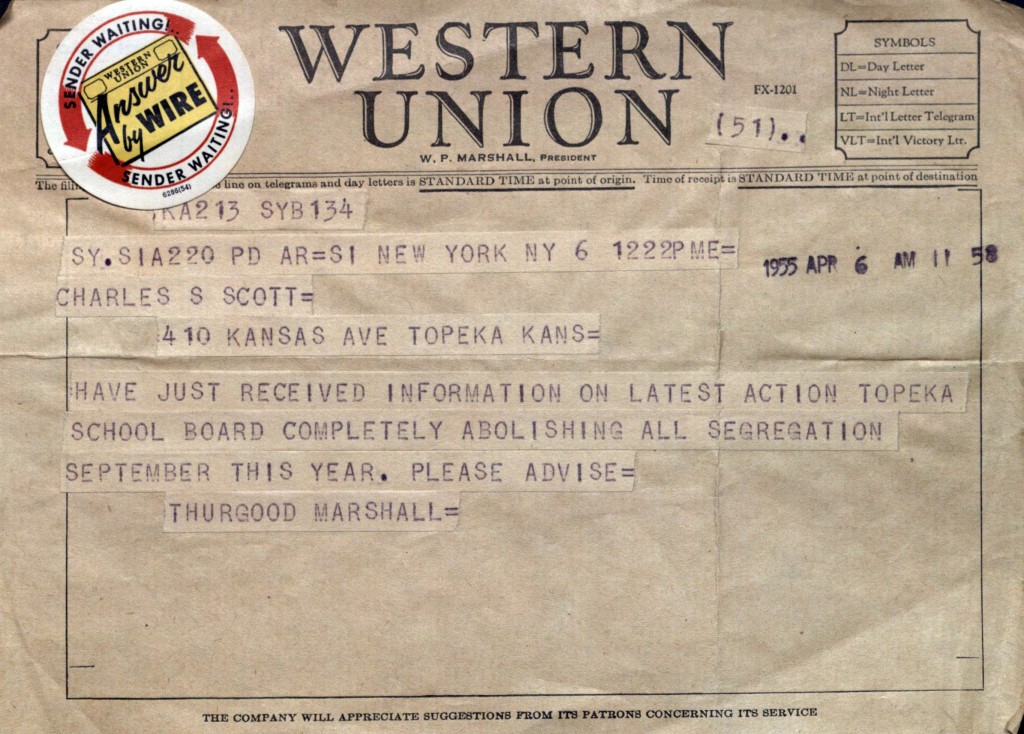“Dear Mr. Scott”
April 13th, 2021This week we’re honoring the one-hundredth birthday of Charles Sheldon Scott, a native of Topeka, Kansas, and a prominent lawyer who focused on civil rights. The most famous case he argued was Brown v. Board of Education of Topeka in 1954. Scott, then only thirty-three years old, was one of the attorneys arguing for the plaintiffs. In this landmark case, argued before the United States Supreme Court, the justices ruled unanimously that racial segregation in public schools was unconstitutional. The case became a foundation of the civil rights movement and set the precedent that the doctrine of “separate-but-equal” in education, and other such services, was discriminatory and not equal at all.
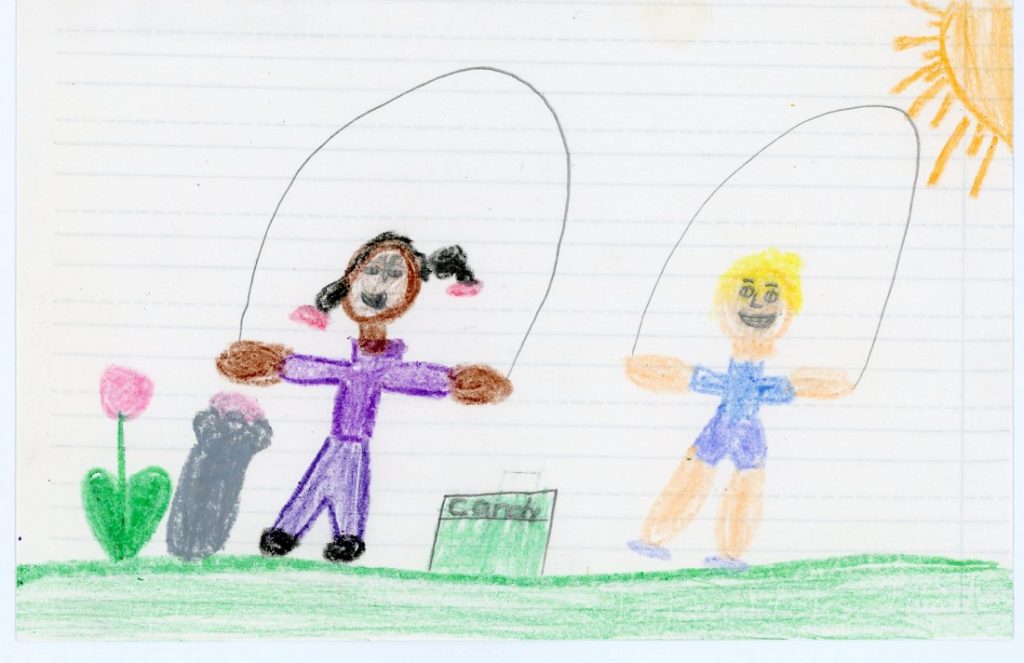
In May 1984, thirty years after Brown v. Board of Education of Topeka, Charles Scott visited McCarter Elementary School in Topeka, Kansas. He spoke to the second- and third-grade classes about the case. These letters illustrate the importance of passing on the significance of that decision to future generations. What follows are a few of the thank you letters he received from the students. Private information has been redacted.
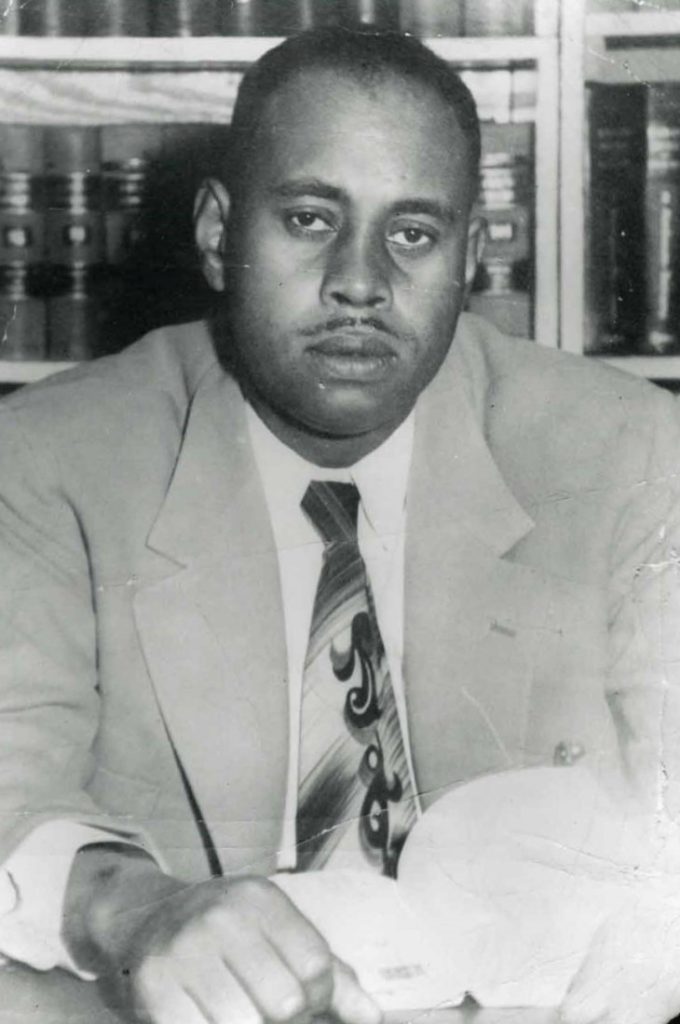
Charles Scott was born in Topeka, Kansas, on April 15, 1921. His father was attorney Elisha Scott, who argued several prominent civil rights cases throughout his career. Charles attended Topeka public schools and graduated from Topeka High School. During World War II, he served with the 2nd Cavalry Division and the Red Ball Express Transportation Unit of the United States Army. After his war service, he returned to Kansas and earned his Bachelor of Law degree in 1948, and then later his Juris Doctorate in 1970, both from Washburn University in Topeka. Charles joined his brother, John, in their father’s law firm Scott, Scott, Scott, and Jackson. During his law career, Charles Scott worked for the integration of schools in Johnson County, Kansas, and equal access to theaters, restaurants, and pools in Topeka. Throughout his law career Scott volunteered his legal services to the Lawyers Constitutional Defense Committee, and in this work he traveled to Mississippi to assist the civil rights workers. He provided legal services to the Congress of Racial Equality (CORE). He served as a staff attorney and hearing examiner for the Kansas Civil Rights Commission. In addition to his law practice, Charles was a part-time instructor for the University of Kansas and Kansas State University. He was a member of the National Association for the Advancement of Colored People (NAACP), and served as chair of the Topeka Branch’s Legal Redress Committee. Charles was married to Louise Crawford, and together they had two children. Charles died on March 3, 1989.
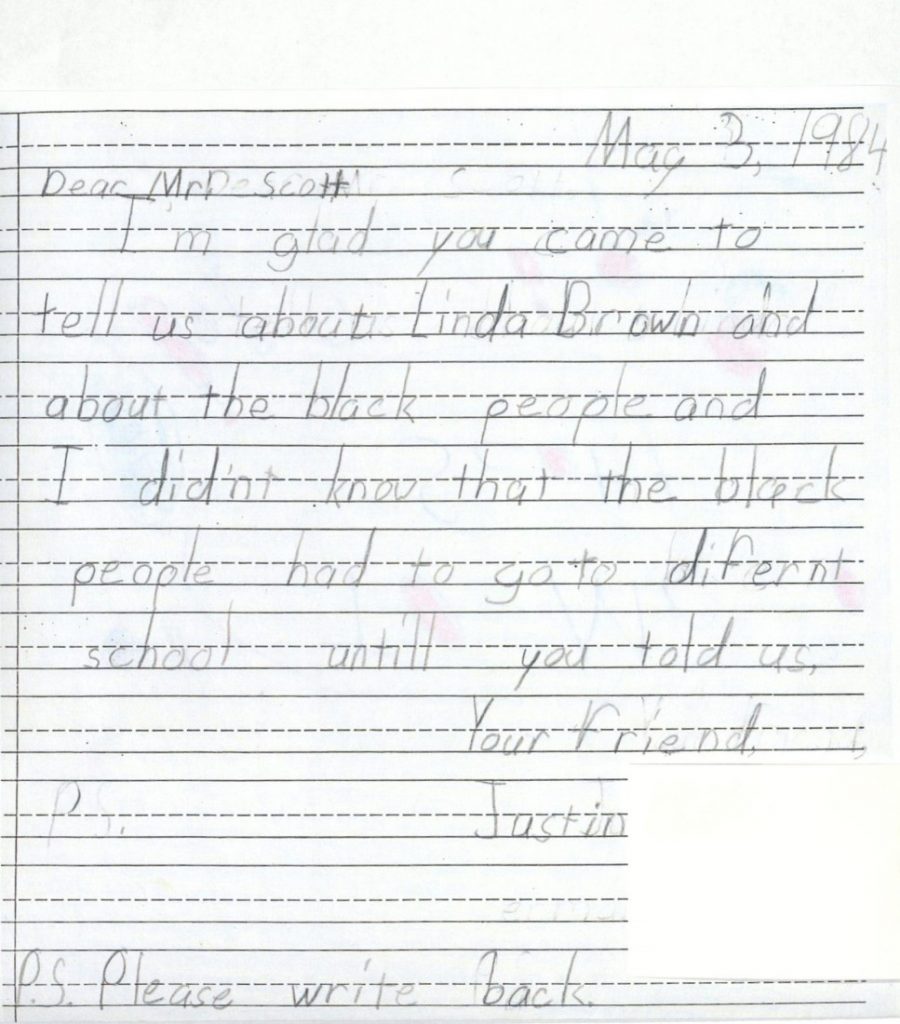
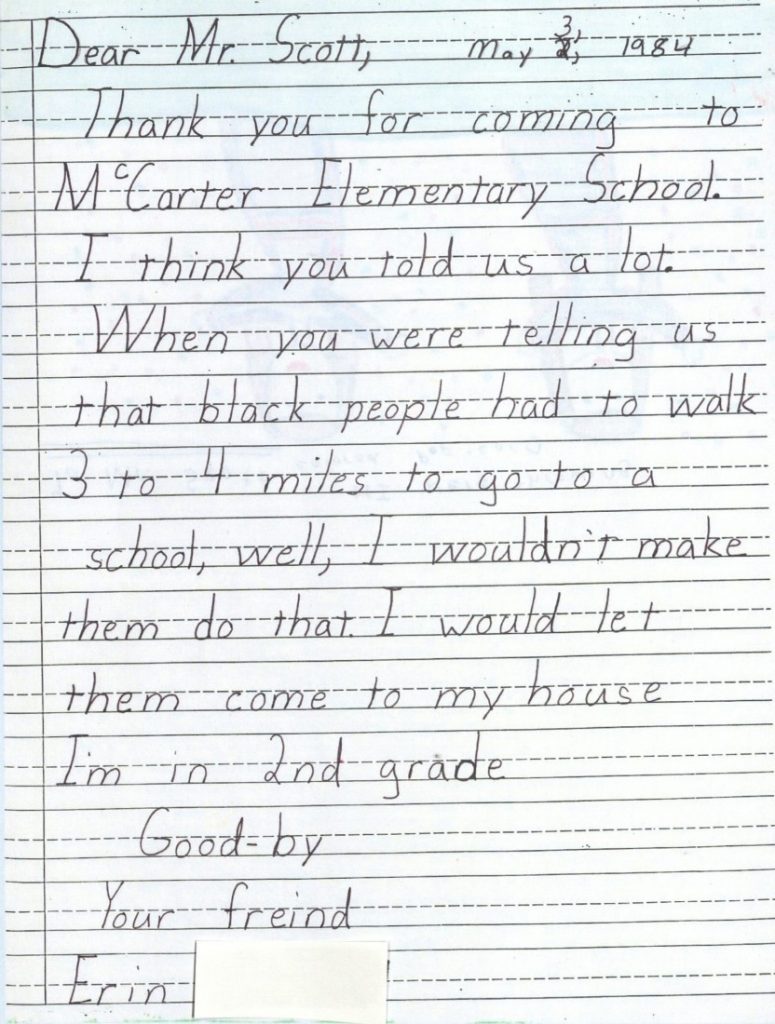
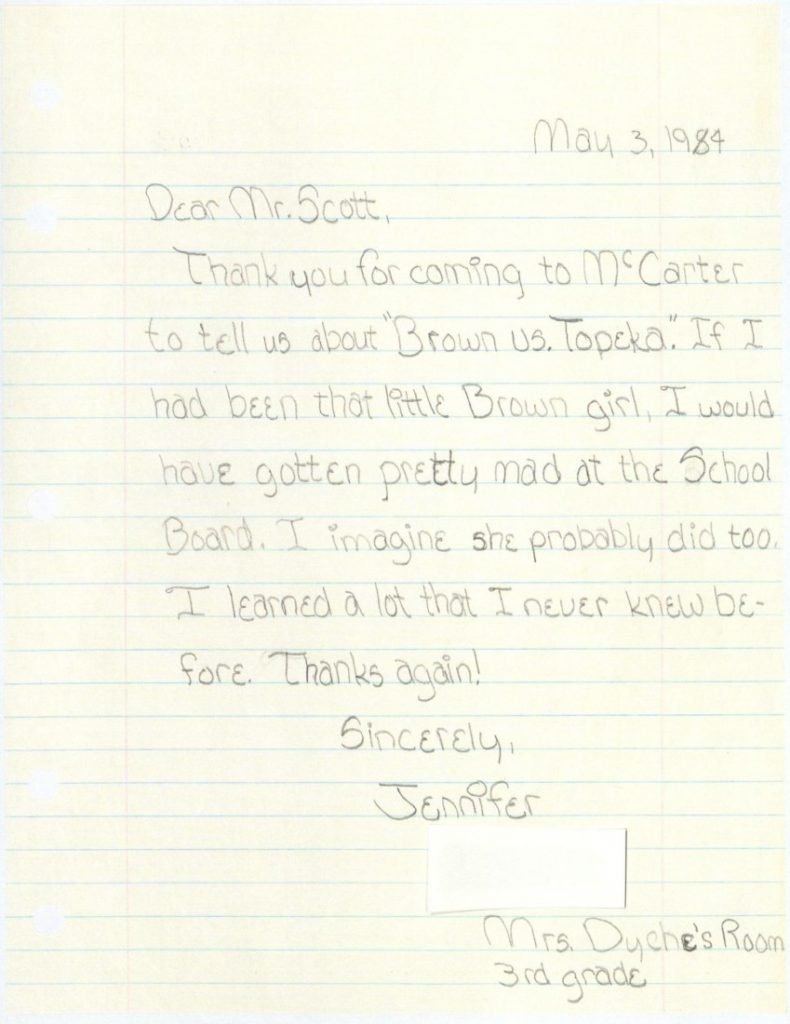
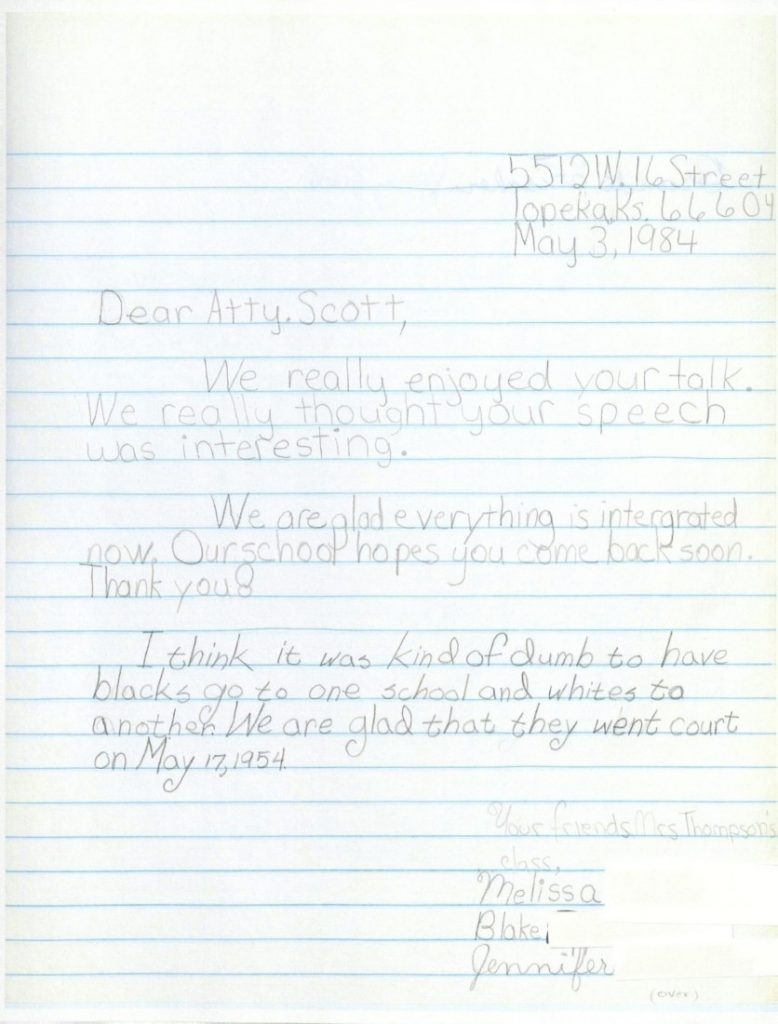
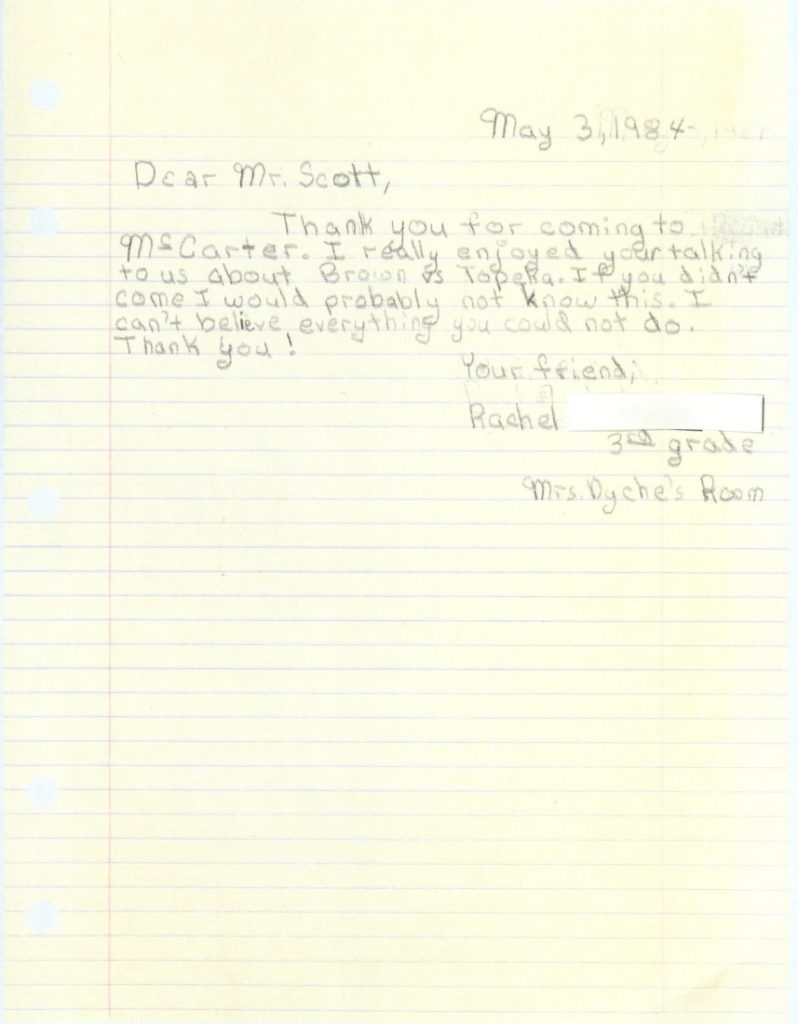
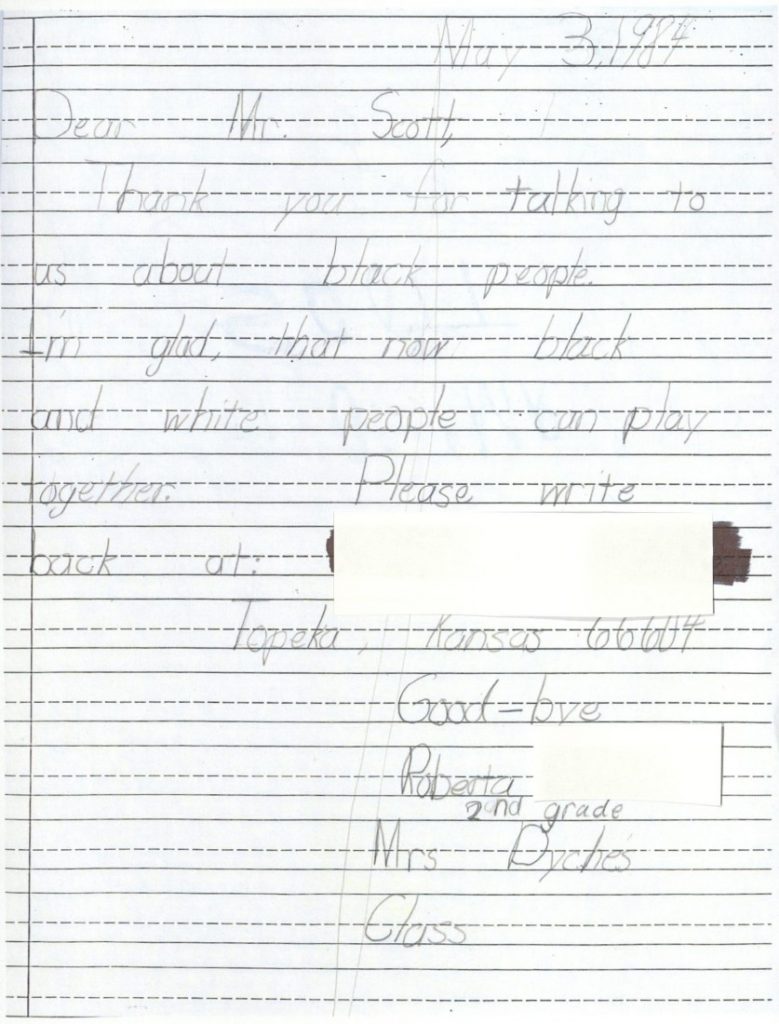
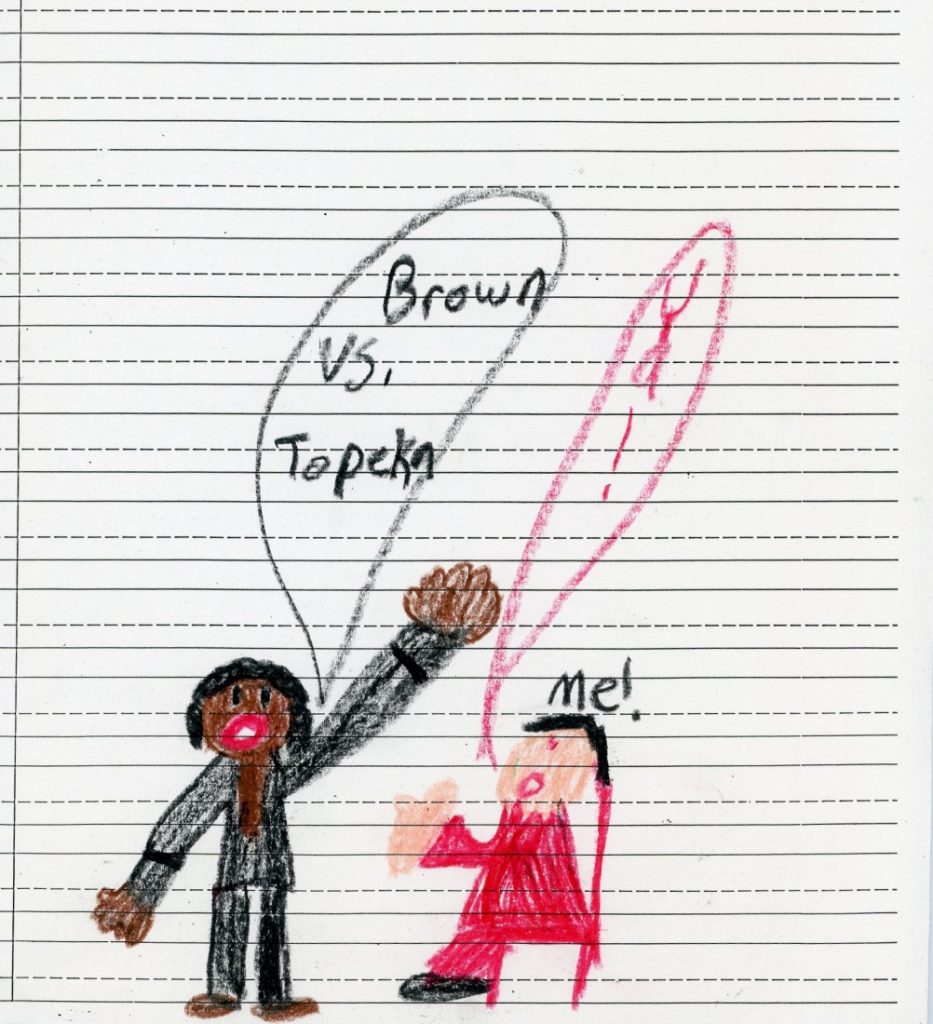
Kathy Lafferty
Public Services

